- Home
- Неизвестный
The Warlock in Spite of Himself wisoh-2 Page 3
The Warlock in Spite of Himself wisoh-2 Read online
Page 3
"What do you see, Sister Ann?"
"A mob," said Fess..
"Astute observation, Watson. Anything else?"
"Torchlight, and a young man climbing up on a platform. If you'll pardon the analogy, Rod, it closely resembles a pep rally at your alma mater."
"Just might be what it is." Rod swung out of the saddle. "Well, you stay here, big fella. I'll scout the terrain."
He rounded the corner and let himself fall into a soldierly swagger, one hand on the pommel of his sword.
Not a bad idea, from the look of the crowd. Must be a meeting of the local Vagabond's Union. Not an un-patched doublet among them. He wrinkled his nose; a washed body seemed to be even more rare. Definitely a seedy lot.
The meeting-place was a large, open square, bordered by a wide river on one side; there were wharves with wooden ships riding at their moorings. On the other three sides of the square were cheap, decaying lodging-houses; sea-tackle stores and other cheap shops, and warehouses. The warehouses, at least, were in good repair. All the buildings were half-timbered, with the characteristic overhanging second story.
The shouting, jostling mob filled the whole square. Flaming pine knots lent a demonic light.
A closer look at the crowd revealed patched eyes, shriveled limbs, heads minus ears—an odd contrast to the figure that stood on the jury-rigged platform.
He was young, broad-shouldered and blond-headed. His face was clean and unscarred, snub-nosed and blue-eyed. It was a round, almost innocent face, open and honest, filled with the eerie light of a Man with a Mission. His doublet and hose were clean, for a wonder, and well-tailored from good cloth. A sword hung at his hip.
"A kid from the right side of the tracks," Rod mused. "What in the Seventh Hell is he doing in this rathole?"
The youth threw up his hands; the crowd roared, pine-knot torches surged forward to light him.
"Whose shoulders have borne up the weightiest burdens?" the boy shouted.
"Ours!" roared the crowd.
"Whose hands are worn hard and scarred with rough toil?"
"Ours!"
"Who is it have built all the wealth that the noblemen squander?"
"We!"
"Who is it have reared up their lofty castles of granite?"
"We!"
"Shall you not have a share in these riches and luxuries?"
"We shall!"
"Why," roared the young spokesman, "there is wealth enough in even one of these castles to make each one of you a king!"
The crowd went wild.
"You catching this, Fess?"
"I am, Rod. It sounds like a mixture of Karl Marx and Huey Long."
"Strange synthesis," Rod muttered. "And yet, maybe not so strange, when you come to think of it."
"This is your wealth!" shouted the youth. "You have a right to it!"
The crowd went wild again.
"Will they give you your due?"
The crowd went suddenly quiet. An ugly murmur began.
"No!" the young man bellowed. "You must therefore demand it, as is your right!"
He threw up his arms. "The Queen has given you bread and wine when the famine was upon you! The Queen has given meat and good wine to the witches whom she harbors!"
The crowd fell deathly still. A whisper ran through the ranks: 'The witches! The witches!"
"Aye," roared the spokesman, "even the witches, the outcast and spurned. How much more, then, will she give to you, who have borne the heat of the day?
"She will give you your due!"
The crowd echoed his roar.
"Where do you go?" yelled the young Demosthenes.
"To the castle!" someone shouted, and other voices took up the cry. "To the castle! To the castle!" It became a rhythmic chant. "To the castle! To the castle! To the castle!"
A high, keening wail cut across the chant. The crowd fell silent. A narrow, twisted figure hobbled to the edge of a warehouse roof and called out over the square:
"Soldiers, a company or more!"
"Out through the alleys and wharves!" bellowed the young man. "At the House of Clovis we shall meet, within the hour!"
To Rod's amazement, the crowd remained silent. Streams of people began to pour down the twisted alleys. There was no panic, no crush.
Rod shrank into a doorway and watched as the torches were grounded. Score upon score of beggars ran past him, light-footed and silent, to be swallowed up by the dark mouths of the byways.
The square emptied; the light sounds of scampering faded away. In the sudden quiet, Rod heard the drum of approaching hooves—the soldiers, coming to check up on the Queen's loyal subjects.
Rod stepped out onto the cobbles, running on the balls of his feet, around the corner where Fess stood waiting.
He was into the saddle without breaking stride. "The good part of town," he whispered, "fast and quiet."
Fess could extrude inch-thick rubber pads from his hooves when silence was called for; he had also memorized a photo-map of the city from their aerial survey. There are advantages to a robot horse.
They fled through the town; the ground rose beneath them, building into the hill crowned by the royal castle. The quality of the buildings improved gradually; they were coming to the more affluent districts.
"What do you make of all that, Fess?"
"A totalitarian movement, beyond question," the robot replied. "A rabble-rouser, no doubt power-hungry, who will lead the people to make demands on the government, demands which cannot be met. The crown's refusals will be used to incite the mob to violence, and you have your revolution made."
"Couldn't be just an ambitious nobleman trying to usurp the crown?"
"Usurpation derives its support from the upper classes, Rod. No, this is a proletarian revolution— a prelude to a totalitarian government."
Rod pursed his lips. "Would you say there was evidence of outside intervention from a more advanced society? I mean, proletarian revolutions aren't usually found in this kind of culture, are they?"
"Rarely, Rod, and the propaganda is rudimentary when they do occur. Persuasion in a medieval society never refers to the basic rights; the concept is alien to the culture. The probability of intervention is quite strong…"
Rod's lips pulled back in a savage grin. "Well, old mechanism, it looks like we've come to the right place to set up shop."
At the uphill edge of the town, they came on a rambling, two-storied structure built around three sides of a torchlit courtyard. A timber palisade with a gate closed the fourth side. A party of laughing, well-dressed young men sauntered out of the gate; Rod caught a snatch of drunken song. Tableware rattled, and voices called for meat and ale.
"I take it we've found one of the better inns."
"I would say that was a warranted assumption, Rod."
Rod leaned back in the saddle. "Looks like a good place to spend the night. Is garlic sausage possible in this culture, Fess?"
The robot shuddered. "Rod, you have the most unearthly tastes!"
"Make way, make way!" a voice trumpeted behind him.
Turning, Rod saw a party of soldiers, cavalry, trotting toward him. Behind them rolled a gilded, richly-carved carriage.
A herald rode in front of the soldiers. "Stand aside from the road, fellow!" he called. "TheQueen's coach passes!"
"Queen!" Rod's eyebrows shot up. "Yes, yes! By all means, let's stand aside!"
He nudgedFess with his knee. The horse whirled off the road and jockeyed for a position on the shoulder that would give Rod a good look at the royal party.
The curtains on the coach were half drawn, but there was looking space. A lantern cast a warm yellow glow inside the coach, affording Rod a brief glimpse as the coach spun by.
A slender, frail form wrapped in a dark, hooded traveling cloak; a pale, small-bone face framed with blond, almost platinum hair, large, dark eyes; and small, very red lips drawn up in a pout.
And young, very young—scarcely past childhood, Rod thought.
&nb
sp; She sat ramrod straight, looking very fragile but also very determined—and, somehow, forlorn, with the hostile, chip-on-the-shoulder attitude that so often goes with fear and loneliness.
Rod stared after the retreating party.
"Rod."
Rod started, shook his head, and realized that the coach had been out of sight for a while.
He glowered at the back of the horse's head. "What is it, Fess?"
"I wondered if you'd fallen asleep." The black head turned to Rod, the great eyes laughing gently.
"No." Rod twisted, looking back at the turn where the coach had disappeared.
Fess schooled his voice to patience. "The Dream again, Rod?"
Rod scowled. "I thought robots didn't have emotions."
"No. But we do have an innate dislike of a lack of that quality which has often been termed common sense."
Rod threw him a sour smile. "And, of course, an appreciation for that quality called irony, since it's basically logical. And irony implies—"
"—a sense of humor, yes. And you must admit, Rod, that there is something innately humorous in a man's chasing an object of his own invention over half a galaxy."
"Oh yeah, it's a million yuks, sure. But isn't that the difference between a man and a robot, Fess?"
"What? The ability to form imaginary constructions?"
"No, the ability to get hung up on them. Well, let's see if we can't find you a quiet stall where you can chew your data in peace."
Fess turned and trotted through the inn-yard gate.
A hostler came running from the stables as Rod dismounted. Rod tossed him the reins, said, "Don't give him too much water," and strolled into the big common room.
Rod hadn't known that rooms could be smoky without tobacco. Obviously, chimney-building was numbered among the underdeveloped sciences on this planet.
The customers didn't seem to mind, though. The room was filled with laughter, coarse jokes, and coarser voices in loud conversation. The great room was taken up by twenty or so large, round tables; there were several smaller tables, occupied by people whose dress marked them above the common (but not high enough to be staying at the castle). Lighting consisted of pine torches, which added to the atmosphere; tallow candles, dripping nicely on the guests; and a huge fireplace, fit to roast an ox, which was exactly what it was doing at the moment.
A small horde of boys and stocky peasant girls kept a steady stream of food and drink passing between the tables and the kitchen; many of them displayed considerable skill at broken-field running.
A large balding man with an apron tied around his ample middle burst out of the kitchen with a great smoking platter—the landlord, at a guess. Business was good tonight.
The man looked up, saw Rod, took in the gold and scarlet doublet, sword and dagger, the general air of authority, the well-filled purse—most especially the purse—and shoved the platter at the nearest serving girl. He bustled up to Rod, rubbing his hands on his apron.
"And how may I serve you, good master?"
"With a tankard of ale, a steak as thick as both your thumbs, and a table alone." Rod smiled as he said it.
The innkeeper stared, his lips forming a round O— Rod had apparently done something out of the ordinary.
Then the old man's eyes took on a calculating look, one that Rod had seen before; it was usually accompanied by a remark to the waiter, sot to voce, "Soft touch. Soak him for all he's worth."
Rod had smiled.
He should have known better.
Some things can be undone, though. Rod let his smile droop into a scowl.
"Well, what are you waiting for?" he barked. "Be quick about it, or I'll dine on a slice off your backside!"
The landlord jumped, then cringed, bowing rapidly.
"But of course, m'lord, of course! Quickly it will be, good master; yes, quickly indeed!" He turned away.
Rod's hand clamped onto his shoulder. "The table," he reminded.
The landlord gulped and bobbed his head, led Rod to a table beside an upright log that served as a pillar, and scurried away—cursing under his breath, no doubt.
Rod returned the courtesy, but enlarged the object to include all "that the landlord stood for, namely the mercenary ways of mankind.
And, of course, wound up cursing himself for having catered to Mammon by getting tough.
But what could he do? SCENT agents were supposed to remain inconspicuous, and a softhearted medieval bourgeois was a contradiction in terms.
But when the landlord said quickly, he meant it. The steak and ale appeared almost before Rod had sat down. The landlord stood by rubbing his hands on his apron and looking very worried. Waiting for Rod to accept the cooking, probably.
Rod opened his mouth to reassure the man, and stopped with a word not quite past his larynx. His nosed twitched; a slow grin spread over his face. He looked up at the landlord.
"Do I smell garlic sausage?"
"Oh yes, your worship!" The landlord started bobbing again. "Garlic sausage it is, your worship, and very fine garlic sausage too, if I may say so. If your worship would care for some… ?"
"My worship would," said Rod, "and presto allegro, sir-rah."
The landlord shied, reminding Rod of Fess regarding a syllogism, and ran.
Now, what was that all about? Rod wondered. Must have been something he said. And he'd been rather proud of that sirrah…
He sampled the steak, and had just washed it down when a plate of sausage thunked! onto the table.
"Very good," said Rod, "and the steak is acceptable."
The landlord's face broke into a grin of relief; he turned to go, then turned back.
"Well, what is it?" Rod asked around a mouthful of sausage.
The landlord was twisting his hands in his apron again. "Beg pardon, my master, but…"His lips twisted too, then the words burst out. "Art a warlock, m' master?"
"Who, me? A warlock? Ridiculous!" For emphasis, Rod jabbed his table knife in the landlord's general direction. The huge belly shrank in amazingly; then it bolted, taking its owner along.
Now where did he get the idea I was a warlock? Rod mused as he chewed a mouthful of steak.
Never had a better steak, he decided. Must be the smoke. Wonder what wood they're using?
Must have been the presto allegro bit. Thought they were magic words, probably…
Well, they had worked wonders.
Rod took a bite of sausage and a swig of ale.
Him, a warlock? Never! He might be a second son of a second son, but he wasn't that desperate.
Besides, being a warlock involved signing a contract in blood, and Rod had no blood to spare. He kept losing it in the oddest places…
He drained his tankard, set it down with a thump. The landlord materialized with a jug and poured him a refill. Rod started a smile of thanks, remembered his station, and changed the smile to a sneer. He fumbled in his purse, felt the irregular shape of a gold nugget—acceptable currency in a medieval society— remembered the quickness of the house to gyp the generous, and passed over the nugget in favor of a sliver of silver.
The landlord stared at the small white bar in the palm of his hand, his eyes making a valiant attempt to turn into hemispheres. He made a gargling sound, stuttered elaborate thanks, and scurried away.
Rod bit his lip in annoyance. Apparently even so small a chunk of silver was enough to excite comment here.
The touch of anger dissipated quickly, though; a pound or two of beef in the belly did tend to make the world look better. Rod threw his legs out in the aisle, stretched, and slumped backward in the chair, picking his teeth with the table knife.
Something was strangely wrong in this common room. The happy were a little too professional about it—voices a shade too loud, laughter a trifle strained, with a dark echo. The glum, on the other hand, were really glum; their brown studies were paneled in walnut.
Feaf.
Take that pair at three o'clock on the third table from the right, no
w—they were awfully earnest about whatever it was they were hashing over. Rod gave his ring a surreptitious nudge and pointed it at the twosome.
"But such meetings do no good if the Queen is continually sending her soldiers against us!"
" Tis true, Adam, 'tis true; she won't hear us, for, when all's said and done, she won't let us close enough to speak."
"Why, then, she must be forced to listen!"
"Aye, but what good would that do? Her nobles would not let her give what we demand."
Adam slammed his open hand on the table. "But we've a right to be free without being thieves and beggars! The debtors' prisons must end, and the taxes with them!"
"Aye, and so must the cutting off of an ear for the theft of a loaf of bread." He rubbed the side of his head, with a hangdog look on his face. "Yet she hath contrived to do summat for us…"
"Aye, this setting-up of her own judges now! The great lords will no longer give each their justice, by style and taste."
"The nobles will not bear it, and that thou knowest. The judges will not stand long." One-Ear's face was grim; he traced circles on the wet tabletop.
"Nay, the noblemen will stand for naught that the Queen designs!" Adam plunged his knife into the tabletop. "Will not the Loguire see that?"
"Nay, speak not against the Loguire!" One-Ear's face darkened. "If 'twere not for him, we would still be a ragtag horde, with no common purpose! Speak not against Loguire, Adam, for without him, we would not have the brass to sit in this inn, where the Queen's soldiers are but guests!"
"Oh, aye, aye, he pulled us together and made men of us thieves. Yet now he holds our new manhood in check; he seeks to keep us from fighting for that which is ours!"
One-Ear's mouth turned down tight at the corners. "Thou hast hearkened too much to the idle and envious chatter of the Mocker, Adam!"
"Yet fight we must, mark my words!" Adam cried, clenching his fist. "Blood must be shed ere we come to our own. Blood must answer for blood, and 'tis blood the nobles have ta'en from—"
Something huge slammed into Rod, knocking him back against the table, filling his head with the smell of sweat and onions and cheap wine.
Rod braced an arm against the table and shoved with his shoulder. The heavy form swayed away with a whuff! of breath. Rod drew his dagger and thumbed the signet ring to off.

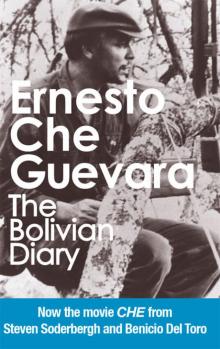 The Bolivian Diary
The Bolivian Diary Caffeine Blues_ Wake Up to the Hidden Dangers of America's #1 Drug ( PDFDrive )
Caffeine Blues_ Wake Up to the Hidden Dangers of America's #1 Drug ( PDFDrive ) The Empty House
The Empty House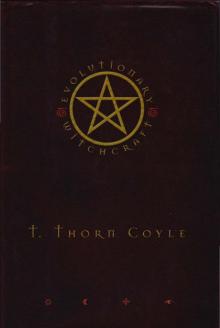 T Thorn Coyle Evolutionary Witchcraft (pdf)
T Thorn Coyle Evolutionary Witchcraft (pdf)![K J Emrick & Kathryn De Winter - [Moonlight Bay Psychic Mystery 01-06] - A Friend in; on the Rocks; Feature Presentation; Manor of; by Chocolate Cake; A-Maze-Ing Death (retail) (epub) Read online](http://freenovelread.comhttps://picture.efrem.net/img/nienyi/k_j_emrick_and_kathryn_de_winter_-_moonlight_bay_psychic_of_by_chocolate_cake_a-maze-ing_death_retail_epub_preview.jpg) K J Emrick & Kathryn De Winter - [Moonlight Bay Psychic Mystery 01-06] - A Friend in; on the Rocks; Feature Presentation; Manor of; by Chocolate Cake; A-Maze-Ing Death (retail) (epub)
K J Emrick & Kathryn De Winter - [Moonlight Bay Psychic Mystery 01-06] - A Friend in; on the Rocks; Feature Presentation; Manor of; by Chocolate Cake; A-Maze-Ing Death (retail) (epub)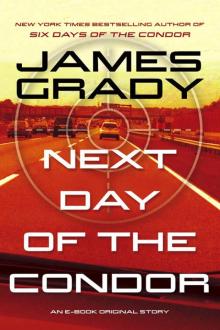 Next Day of the Condor
Next Day of the Condor Onyx
Onyx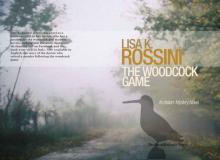 The Woodcock Game: An Italian Mystery Novel
The Woodcock Game: An Italian Mystery Novel Granta 122: Betrayal (Granta: The Magazine of New Writing)
Granta 122: Betrayal (Granta: The Magazine of New Writing)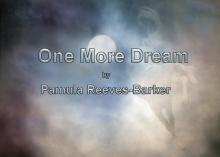 One More Dream
One More Dream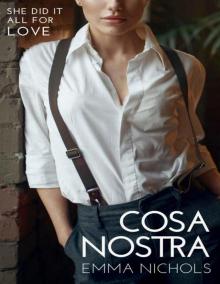 Cosa Nostra by Emma Nichols) 16656409 (z-lib.org) (1)-compressed
Cosa Nostra by Emma Nichols) 16656409 (z-lib.org) (1)-compressed Cowboy by J. M. Snyder
Cowboy by J. M. Snyder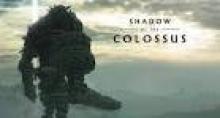 Colossus
Colossus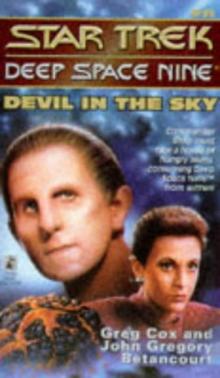 Star Trek - DS9 011 - Devil In The Sky
Star Trek - DS9 011 - Devil In The Sky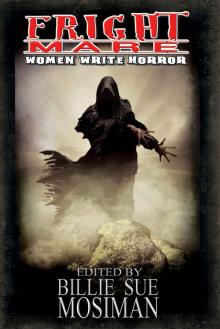 Fright Mare-Women Write Horror
Fright Mare-Women Write Horror The Future Is Japanese
The Future Is Japanese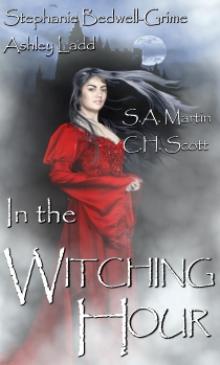 In the Witching Hour
In the Witching Hour Mammoth Books presents Wang's Carpets
Mammoth Books presents Wang's Carpets The Cradle King: The Life of James VI and I, the First Monarch of a United Great Britain
The Cradle King: The Life of James VI and I, the First Monarch of a United Great Britain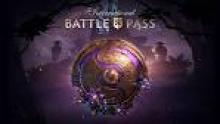 Stalking Moon
Stalking Moon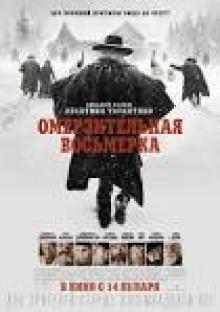 Hostage To The Devil
Hostage To The Devil![Harris, Daisy - Mere Passion [Ocean Shifters 2] (Siren Publishing Classic) Read online](http://i1.bookreadfree.com/i/03/23/harris_daisy_-_mere_passion_ocean_shifters_2_siren_publishing_classic_preview.jpg) Harris, Daisy - Mere Passion [Ocean Shifters 2] (Siren Publishing Classic)
Harris, Daisy - Mere Passion [Ocean Shifters 2] (Siren Publishing Classic) Day, Sunny - Hot in Space (Siren Publishing Ménage and More)
Day, Sunny - Hot in Space (Siren Publishing Ménage and More) Five Books Of The Lives, Heroic Deeds And Sayings Of Gargantua And His Son Pantagruel
Five Books Of The Lives, Heroic Deeds And Sayings Of Gargantua And His Son Pantagruel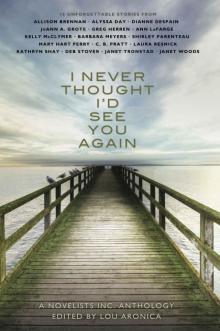 I Never Thought I'd See You Again: A Novelists Inc. Anthology
I Never Thought I'd See You Again: A Novelists Inc. Anthology Billion dollar baby bargain.txt
Billion dollar baby bargain.txt![Chenery, Marisa - Turquoise Eye of Horus [Egyptian Shifters 1] (Siren Publishing Classic) Read online](http://i1.bookreadfree.com/i1/03/26/chenery_marisa_-_turquoise_eye_of_horus_egyptian_shifters_1_siren_publishing_classic_preview.jpg) Chenery, Marisa - Turquoise Eye of Horus [Egyptian Shifters 1] (Siren Publishing Classic)
Chenery, Marisa - Turquoise Eye of Horus [Egyptian Shifters 1] (Siren Publishing Classic) Cat Magic
Cat Magic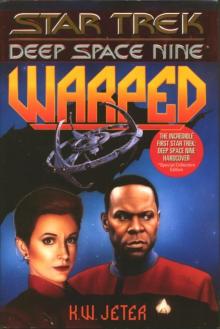 Star Trek - DS9 - Warped
Star Trek - DS9 - Warped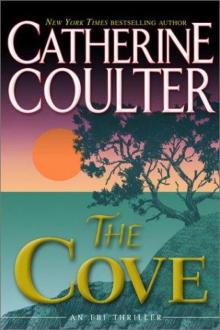 Catherine Coulter - FBI 1 The Cove
Catherine Coulter - FBI 1 The Cove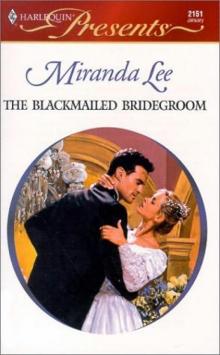 Miranda Lee -The Blackmailed Bridegroom
Miranda Lee -The Blackmailed Bridegroom The Seashell Anthology of Great Poetry
The Seashell Anthology of Great Poetry Dragon Moon
Dragon Moon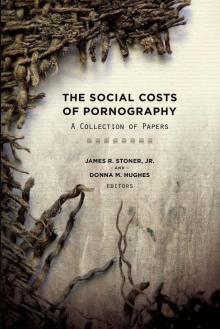 The Social Costs of Pornography: A Collection of Papers
The Social Costs of Pornography: A Collection of Papers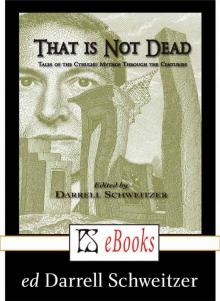 That Is Not Dead
That Is Not Dead Best New Horror: Volume 25 (Mammoth Book of Best New Horror)
Best New Horror: Volume 25 (Mammoth Book of Best New Horror) This Christmas by J. M. Snyder
This Christmas by J. M. Snyder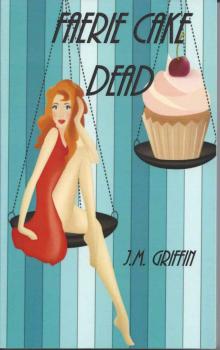 Faerie Cake Dead
Faerie Cake Dead CS-Dante's Twins
CS-Dante's Twins EFD1: Starship Goodwords (EFD Anthology Series from Carrick Publishing)
EFD1: Starship Goodwords (EFD Anthology Series from Carrick Publishing)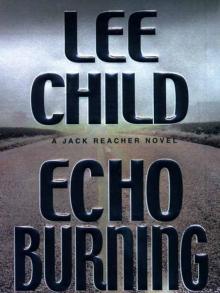 Echo Burning by Lee Child
Echo Burning by Lee Child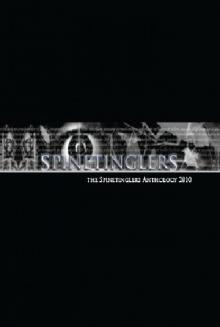 The Spinetinglers Anthology 2010
The Spinetinglers Anthology 2010 Wild Hearts
Wild Hearts Violet Winspear - Sinner ...
Violet Winspear - Sinner ... Broken Angels
Broken Angels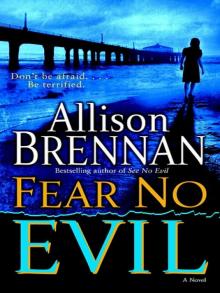 FearNoEvil
FearNoEvil![Santiago, Lara - Range War Bride [Tasty Treats 11] (Siren Publishing PolyAmour) Read online](http://i1.bookreadfree.com/i1/03/30/santiago_lara_-_range_war_bride_tasty_treats_11_siren_publishing_polyamour_preview.jpg) Santiago, Lara - Range War Bride [Tasty Treats 11] (Siren Publishing PolyAmour)
Santiago, Lara - Range War Bride [Tasty Treats 11] (Siren Publishing PolyAmour) 8 Great Hebrew Short Novels
8 Great Hebrew Short Novels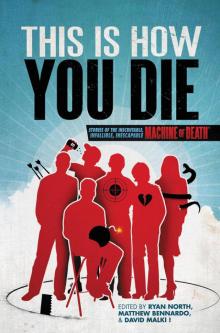 This Is How You Die: Stories of the Inscrutable, Infallible, Inescapable Machine of Death
This Is How You Die: Stories of the Inscrutable, Infallible, Inescapable Machine of Death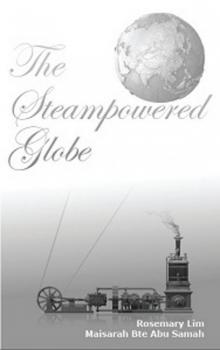 The Steampowered Globe
The Steampowered Globe While We Wait by J. M. Snyder
While We Wait by J. M. Snyder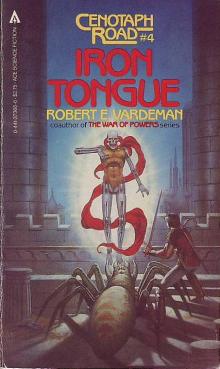 Iron Tongue cr-4
Iron Tongue cr-4![Stieg Larsson [Millennium 02] The Girl Who Played with Fire v5.0 (LIT) Read online](http://i1.bookreadfree.com/i1/03/31/stieg_larsson_millennium_02_the_girl_who_played_with_fire_v5_0_lit_preview.jpg) Stieg Larsson [Millennium 02] The Girl Who Played with Fire v5.0 (LIT)
Stieg Larsson [Millennium 02] The Girl Who Played with Fire v5.0 (LIT)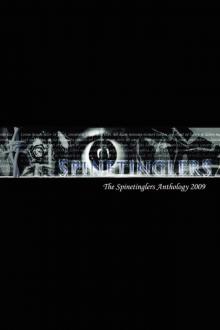 The Spinetinglers Anthology 2009
The Spinetinglers Anthology 2009 Bowles, Jan - Branded by the Texas Rancher (Siren Publishing Classic)
Bowles, Jan - Branded by the Texas Rancher (Siren Publishing Classic) Brown, Berengaria - Vivienne's Vacation (Siren Publishing Ménage and More)
Brown, Berengaria - Vivienne's Vacation (Siren Publishing Ménage and More)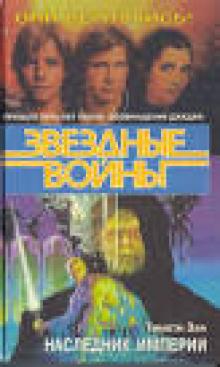 Inheritors
Inheritors Arthur Conan Doyle: A Life in Letters
Arthur Conan Doyle: A Life in Letters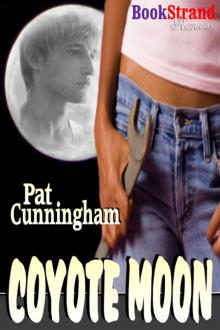 Cunningham, Pat - Coyote Moon (BookStrand Publishing Romance)
Cunningham, Pat - Coyote Moon (BookStrand Publishing Romance)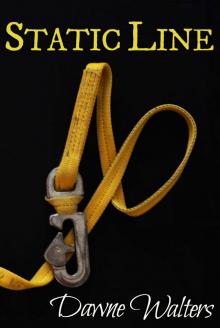 Static Line
Static Line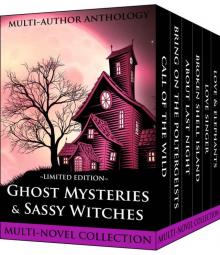 Ghost Mysteries & Sassy Witches (Cozy Mystery Multi-Novel Anthology)
Ghost Mysteries & Sassy Witches (Cozy Mystery Multi-Novel Anthology) Elizabeth Neff Walker - Puppy Love
Elizabeth Neff Walker - Puppy Love Ghosts in the Machine
Ghosts in the Machine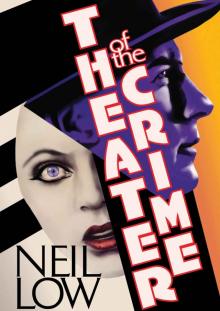 Theater of the Crime (Alan Stewart and Vera Deward Murder Mysteries Book 6)
Theater of the Crime (Alan Stewart and Vera Deward Murder Mysteries Book 6)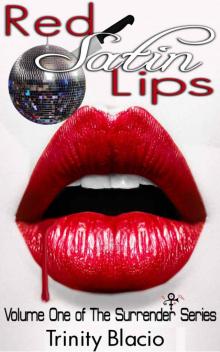 Red Satin Lips, Book One (The Surrender Series)
Red Satin Lips, Book One (The Surrender Series)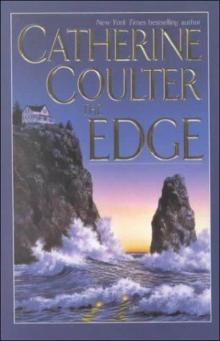 Catherine Coulter - FBI 4 The Edge
Catherine Coulter - FBI 4 The Edge StateoftheUnion
StateoftheUnion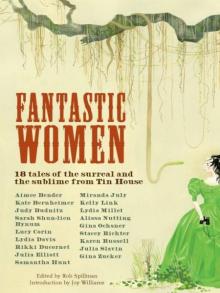 Fantastic Women: 18 Tales of the Surreal and the Sublime from Tin House
Fantastic Women: 18 Tales of the Surreal and the Sublime from Tin House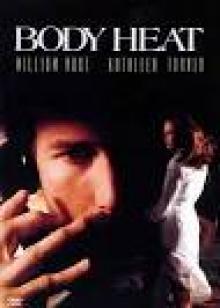 Sara Wood-Expectant Mistress original
Sara Wood-Expectant Mistress original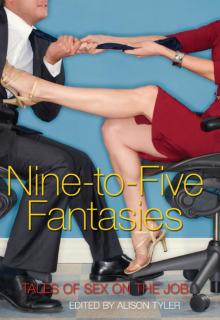 Nine-to-Five Fantasies: Tales of Sex on the Job
Nine-to-Five Fantasies: Tales of Sex on the Job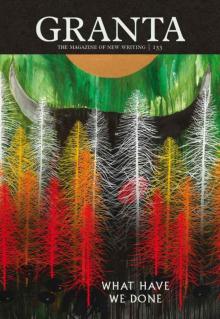 Granta 133
Granta 133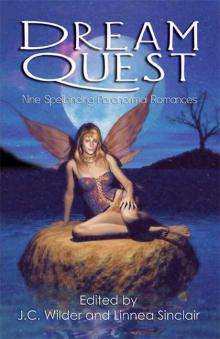 Dream Quest
Dream Quest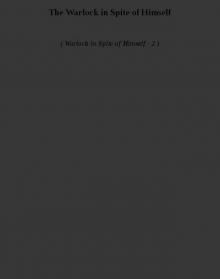 The Warlock in Spite of Himself wisoh-2
The Warlock in Spite of Himself wisoh-2 Glenn, Stormy - Mating Heat (Siren Publishing Ménage Amour)
Glenn, Stormy - Mating Heat (Siren Publishing Ménage Amour) Davis, Lexie - Toys from Santa (Siren Publishing Classic)
Davis, Lexie - Toys from Santa (Siren Publishing Classic) Once Dead, Twice Shy
Once Dead, Twice Shy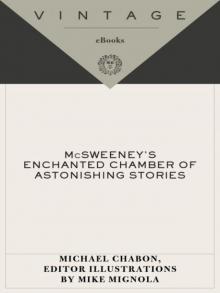 McSweeney's Enchanted Chamber of Astonishing Stories
McSweeney's Enchanted Chamber of Astonishing Stories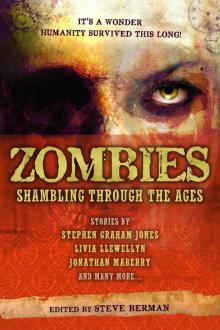 Zombies: Shambling Through the Ages
Zombies: Shambling Through the Ages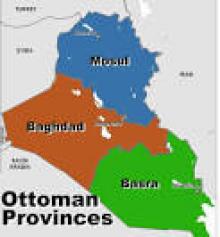 Baghdad Without a Map
Baghdad Without a Map Banshee Cries (the walker papers)
Banshee Cries (the walker papers)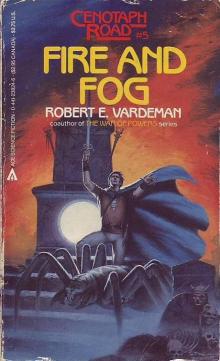 Fire and Fog cr-5
Fire and Fog cr-5 The Twelve Hot Days of Christmas
The Twelve Hot Days of Christmas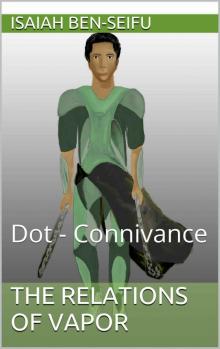 The Relations of Vapor: Dot - Connivance
The Relations of Vapor: Dot - Connivance![Harris, Daisy - Mere Temptation [Ocean Shifters 1] (Siren Publishing Classic) Read online](http://i1.bookreadfree.com/i2/04/11/harris_daisy_-_mere_temptation_ocean_shifters_1_siren_publishing_classic_preview.jpg) Harris, Daisy - Mere Temptation [Ocean Shifters 1] (Siren Publishing Classic)
Harris, Daisy - Mere Temptation [Ocean Shifters 1] (Siren Publishing Classic)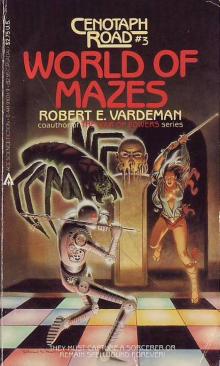 World of Mazes cr-3
World of Mazes cr-3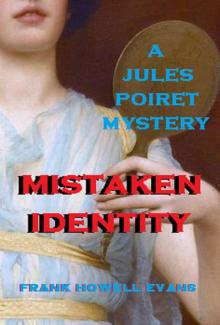 Mistaken Identity (A Jules Poiret Mystery Book 26)
Mistaken Identity (A Jules Poiret Mystery Book 26)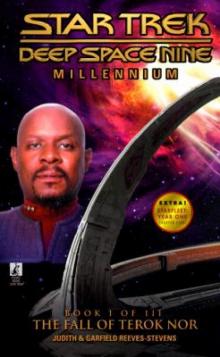 Star Trek - DS9 - Fall of Terok Nor
Star Trek - DS9 - Fall of Terok Nor Not Like I'm Jealous or Anything: The Jealousy Book (Ruby Oliver)
Not Like I'm Jealous or Anything: The Jealousy Book (Ruby Oliver) Skaterboy by J. M. Snyder
Skaterboy by J. M. Snyder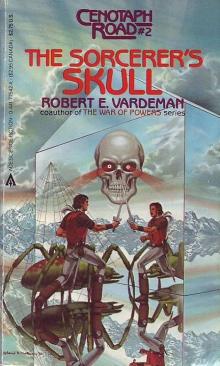 The Sorcerer_s Skull cr-2
The Sorcerer_s Skull cr-2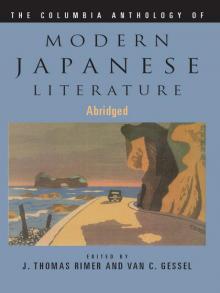 The Columbia Anthology of Modern Japanese Literature (Modern Asian Literature Series)
The Columbia Anthology of Modern Japanese Literature (Modern Asian Literature Series) New Erotica 5
New Erotica 5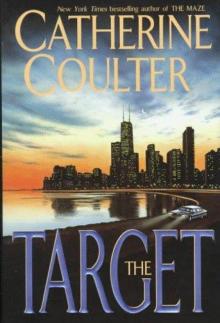 Catherine Coulter - FBI 3 The Target
Catherine Coulter - FBI 3 The Target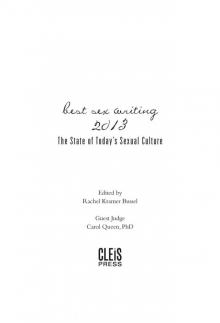 Best Sex Writing 2013: The State of Today's Sexual Culture
Best Sex Writing 2013: The State of Today's Sexual Culture Factoring Humanity
Factoring Humanity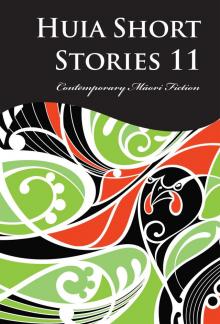 Huia Short Stories 11
Huia Short Stories 11 Call of the Wilds
Call of the Wilds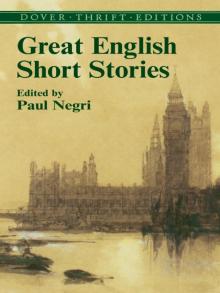 Great English Short Stories (Dover Thrift Editions)
Great English Short Stories (Dover Thrift Editions)![Ramagos, Tonya - Logan's Lessons [Sunset Cowboys 2] (Siren Publishing Classic) Read online](http://i1.bookreadfree.com/i2/04/10/ramagos_tonya_-_logans_lessons_sunset_cowboys_2_siren_publishing_classic_preview.jpg) Ramagos, Tonya - Logan's Lessons [Sunset Cowboys 2] (Siren Publishing Classic)
Ramagos, Tonya - Logan's Lessons [Sunset Cowboys 2] (Siren Publishing Classic)![Morgan, Nicole - Sweet Redemption [Sweet Awakenings 1] (Siren Publishing Allure) Read online](http://i1.bookreadfree.com/i2/04/10/morgan_nicole_-_sweet_redemption_sweet_awakenings_1_siren_publishing_allure_preview.jpg) Morgan, Nicole - Sweet Redemption [Sweet Awakenings 1] (Siren Publishing Allure)
Morgan, Nicole - Sweet Redemption [Sweet Awakenings 1] (Siren Publishing Allure)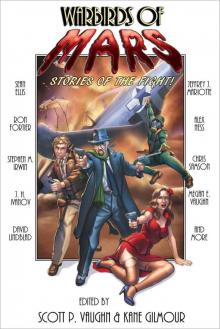 Warbirds of Mars: Stories of the Fight!
Warbirds of Mars: Stories of the Fight!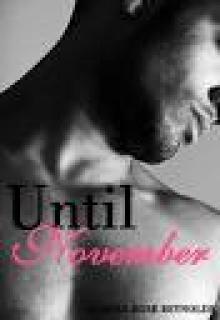 Original Version of Edited Godwin Stories(lit)
Original Version of Edited Godwin Stories(lit) Where The Hell is Boulevard?
Where The Hell is Boulevard?![Chemical [se]X Read online](http://i1.bookreadfree.com/i2/04/13/chemical_sex_preview.jpg) Chemical [se]X
Chemical [se]X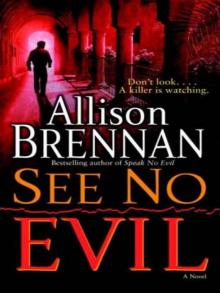 Allison Brennan - See No Evil
Allison Brennan - See No Evil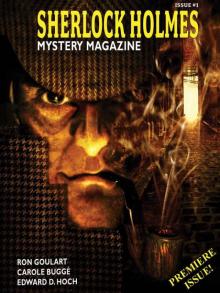 Sherlock Holmes Mystery Magazine #1
Sherlock Holmes Mystery Magazine #1